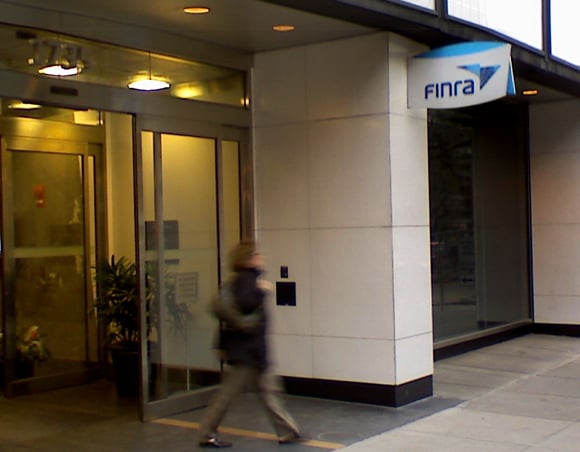'Name calling,' 'conspiracy theories' spice up election for seat on board
As the conclusion nears in a heated campaign for a small-firm seat on the Financial Industry Regulatory Authority Inc. board, three competing candidates are hard at work making their cases for why they should represent small broker-dealers.
The regulatory burden smaller firms face is the key issue among the candidates.
"That's the big gorilla," said one of the candidates, John Moloney, chief executive of Moloney Securities Co. Inc. Mr. Moloney is running against Alan Davidson, president of Zeus Securities Inc., and Ken Norensberg, chief operating officer of Tritaurian Capital Inc., who is the current holder of the contested seat.
Votes in the election will be counted at Finra's annual meeting Aug. 3.
The industry regulator seems to disregard the fact that small introducing firms pose very limited risk, Mr. Davidson said.
"Exams find either technical violations or customer issues," he said. "Technical violations should be downplayed as long as immediate action is taken. For customer issues, that's where Finra's full attention should be focused."
Regulatory mandates coming from Dodd-Frank and the Madoff scandal continue to affect broker-dealers, Mr. Norensberg said.
In his campaign, he has highlighted his efforts in meeting with representatives of the Public Company Accounting Oversight Board to minimize auditing requirements on small brokerage firms, as well as his communication about board meetings to small-firm members.
Mr. Moloney wants Finra to conduct postmortem reviews of exams to ensure that actions intended to improve efficiency of audits are implemented.
Finra should "make sure the direction [given to examiners from Washington] actually is … getting out to the troops," he said.
The Financial Services Institute Inc. this month endorsed Mr. Moloney, who is member of the FSI. The backing brought a rebuke from the outspoken Mr. Davidson, who said the backing was the result of Mr. Moloney's "old boy" connections.
He also faults Mr. Moloney for serving as an appointed member on Finra committees and being too close to Finra management.
"Mr. Davidson does not know me, Mr. Moloney countered. “If he did, he wouldn't be saying what he's saying.” Mr. Moloney added that he routinely speaks with Finra officials and disagrees on many policies, but is also able to compromise.
As for the FSI, the group "has a propensity to back losers" and represents a relatively small number of firms, Mr. Davidson wrote in an e-mailed campaign statement.
"Mr. Davidson's unprofessional name calling and conspiracy theories is yet another reason why John Moloney is the best candidate to represent small firms on the Finra board," FSI spokesman Chris Paulitz said in a statement.
Mr. Norensberg has also been the subject of Mr. Davidson's attacks.
Mr. Davidson said Mr. Norensberg has communicated little about his beliefs or accomplishments since being elected to the board last August, and faults Mr. Norensberg for being a compliance consultant.
"You never bring yourself up by bringing someone else down," Mr. Norensberg said, declining to respond to Mr. Davidson. "There are plenty of issues out there that need to be dealt with," he said, instead of exchanging personal barbs.
The election will be the first one conducted under a new procedure whereby Finra left it up to its smaller member firms to nominate their own candidates via a petition process.
Finra's nominating committee in the past has picked a small-firm nominee. But receiving the nod from the committee has proved to be the kiss of death. A string of Finra-nominated candidates have lost to petition candidates in recent years.
"Members definitely feel empowered in that they have the ability to vote for whom they choose, rather than being forced" to accept a Finra nominee, Mr. Norensberg said.
The 22-person Finra board has three small-firm governors, three from large firms, and one from a midsize firm.
Member firms can nominate and vote for candidates in their own size category.
Finra defines small firms as those with fewer than 150 registered representatives.







